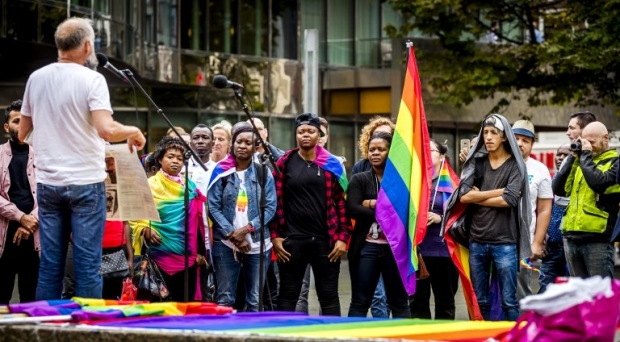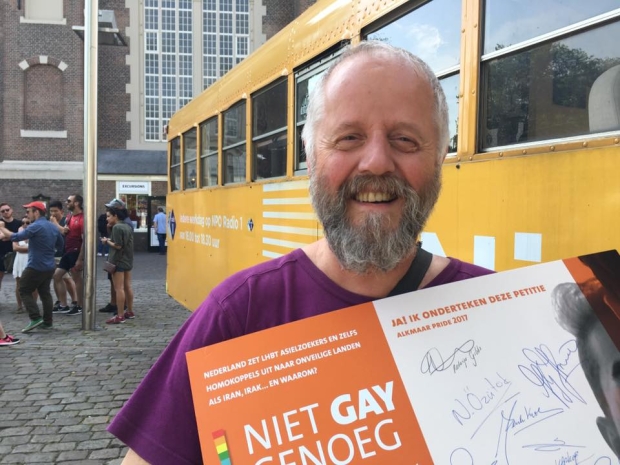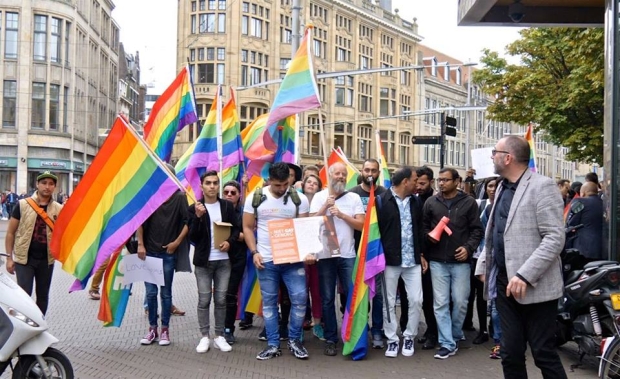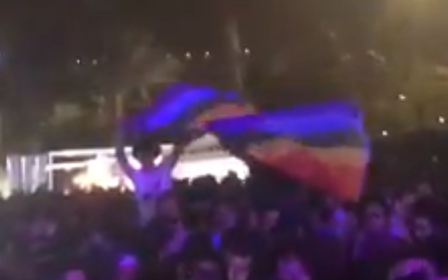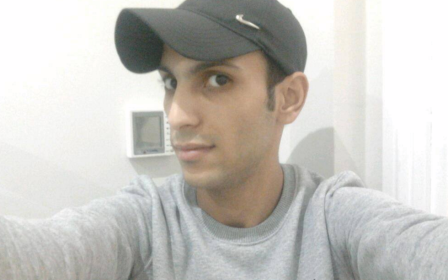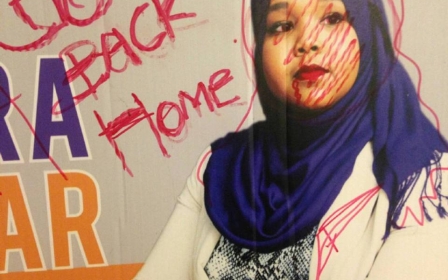'We don't believe you are gay': LGBT refugees in Netherlands lose hope
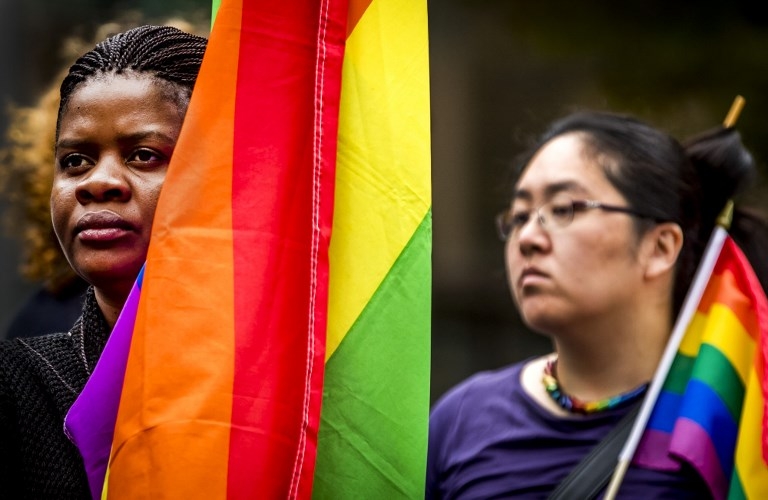
AMSTERDAM - Zaman, a 26-year-old from Iraq, says he should be enjoying a new chapter in his life. After suffering years of physical and verbal abuse from his family, his employers and even random people on the street for being gay, he finally made the decision to flee to the Netherlands, a country internationally lauded as one of the most LGBT-tolerant places in the world.
How can I go back to Iraq? I have so many problems there - they would kill me
– Zaman, Iraqi refugee
His trip to the Netherlands was not easy. He initially took a plane to Turkey, then travelled illegally to Greece by boat. He then made his way through many countries by land, including Serbia, Macedonia and Germany, until he reached the Netherlands in October 2015. He thought he would be safe, finally able to live freely for the first time - something impossible for LGBT people in Iraq.
Instead, he is struggling to avoid deportation back to a place where his life would be in danger. Over the past two years, his asylum application has been denied twice because the Dutch Immigration and Naturalisation Service (IND) does not believe his story, part of a growing trend affecting dozens of other LGBT refugees in the Netherlands.
"IND told me, 'We don't believe you are gay because you don't speak about it right," says Zaman by FaceTime from his home in Middelburg, south Netherlands, where he lives with his Dutch fiancee Richard.
According to Zaman, the IND pointed to his lack of knowledge about the local Dutch gay scene and said they didn't believe he was in a relationship with Richard, who he had met a few months prior to his first interview with the IND in June 2016.
"It really made me sick," explains Zaman, fiddling with a diamanté earring, as he speaks. "I cried so much. I felt horrible."
Zaman appealed the decision, compiling 150 photos and reams of WhatsApp conversations documenting his relationship with Richard, such as the couple enjoying Christmas at Richard's parents' house and celebrations, including birthdays and parties. He also included 12 letters from family, friends, neighbours and NGO workers who knew him as evidence of his sexuality.
IND told me, 'We don't believe you are gay because you don't speak about it right'
– Zamen, Iraqi refugee
However, less than a week after submitting it all in June this year, he was rejected again. He is now going through the final appeal process in front of a judge, with a verdict due by early November.
"AZC [the asylum seekers centre] told me I should go back to Iraq. How can I go back? I have so many problems there - they would kill me," he says, before adding defiantly: "I would sleep in the streets rather than go back to Iraq. I don't want to be dead."
Zaman's family always knew he was different. He says that his brother used to beat him up and threatened to kill him after finding him with his boyfriend once outside the family home in the middle of the night.
Zaman's case is just one in a long line of LGBT asylum rejections in the Netherlands based on refugees being deemed "not gay" by the IND.
Growing problem
The IND does not compile any statistics on LGBT refugees, so it's difficult to know what percentage are being rejected, but lawyers and activists working on the issue say they have dealt with dozens of cases - mainly male homosexuals - this year alone, and that the situation is getting worse every day.
"The IND doesn't release numbers but we know the problem is quite big," says Sandro Kortekaas. He is chairman of the LGBT Asylum Support organisation, an independent NGO that supports LGBT asylum seekers.
"You need to have a system, of course, but at the moment that system is not human or fair," says Kortekaas.
So far this year Kortekaas has supported more than 90 cases, up from 70 during 2016. "And these are only the ones who found us," he adds.
They thought they had come to a safe country where they have this big Pride festival, full of tolerance and respect for LGBT rights, then they get this
- Sandro Kortekaas, chairman of the LGBT Asylum Support organisation
"The people we help, 95 percent I'm really sure that they are gay," says Kortekaas. "They feel like they are in a nightmare. They thought they had come to a safe country where they have this big Pride festival, full of tolerance and respect for LGBT rights, then they get this. That's very, very difficult."
Lengthy interrogation
The problem stems from new Dutch assessment criteria issued in October 2015. According to lawyers working on the issue, the IND's new working instructions now focus on a refugee's explanation of the inner process they went through when realising their sexuality and the way they dealt with it.
This is interrogated during a lengthy, in-depth interview with an IND officer, the transcript and notes from which are then assessed by a separate official before a decision is reached. But critics say this is an unfair thing to ask of anyone, let alone someone who may not be well educated or is uncomfortable discussing something so intimate and previously taboo with a stranger or through an interpreter.
"If you were to ask me this question, I would say, 'What are you talking about?'" says lawyer Erik Hagenaars. "Let alone asking it of someone from a rural African area who has never been to school and just happens to be gay. Will he or she be capable of articulating their feelings about that?"
You need to have a system [for assessing refugees], but at the moment that system is not human or fair
- Sandro Kortekaas, LGBT Asylum Support
Hagenaars has handled hundreds of LGBT-related cases over the last few years and says he currently has more than 90 clients from countries as diverse as Iran, Pakistan, Uganda and Morocco - all in the same predicament. He says the way the IND works seems to be becoming "more and more strict week by week".
"It's so arbitrary," he adds. "It's simply an injustice."
Ahmad Heidari, a 28-year-old bisexual blind refugee from Iran, says that the current system is failing a highly vulnerable group of people including him.
Heidari did whatever work he could find in Iran, everything from IT to selling cars with the help of his friends. Last June, he signed up for a conference on international tourism and IT in the Netherlands to find out more about new technologies for blind people in the field. While here, his apartment was raided by Iranian police, who found gay pornographic videos on his computer.
He says his life previously had been a quiet, happy one - no one had known about his bisexuality apart from a few discreet partners, although he says his parents suspected. But all of that changed after the raid. His father told him it was too dangerous to come home, so he stayed in the Netherlands and applied for asylum. Homosexuality is punishable by death in Iran.
Regardless, his application has been denied twice because of doubts about his sexuality. Heidari says the process didn't take his specific circumstances into account, with one judge questioning why he hadn't gone to more LGBT events if he really was bisexual.
"I'm blind, so the process is different for me than for others," says Heidari, who was born blind due to complications that occurred at birth and now stays at a refugee centre in Delfzijl, northeast Netherlands. "I stay in my small room in the [refugee] camp the whole time because I can't move around easily. Someone has to take care of me the whole time and I don't really know anyone here."
Heidari now faces the prospect of being forcibly returned to Iran. After his appeal was denied for the second time in July, he was supposed to leave his camp on 31 August, but at the last moment his lawyer got permission for him to stay a while longer, as a final appeal goes to the Dutch high court. His lawyer told him the IND's opinion is rarely overturned at this stage, so he isn't hopeful.
Culture of disbelief
This trend of governmental scepticism over the issue of sexuality is not unique to the Netherlands, and has also been documented everywhere from the UK to Germany to Australia.
According to lawyer and researcher Sabine Jensen, 10 years ago the idea of not believing a refugee's stated sexuality was unheard of in the Netherlands,
"There were other obstacles back then," explains Jensen, who wrote a report in 2011 about the difficulties facing LGBT asylum seekers in Europe and is currently writing a follow-up, due to be released later this year. "But those obstacles are gone now, and disbelief is taking their place."
At the crux of these cases is the question of how to prove your sexuality - an impossible task
Jensen estimates that there are a few hundred LGBT asylum seekers each year.
The only ray of light for those affected is a judicial verdict back in June overturning a deportation order for another Iraqi refugee based on not being gay.
The judges reasoned the IND should also take into account photographs and a statement from the man's Dutch live-in partner, evidence the agency usually discounts to avoid the risk of people paying for witnesses to support their story, according to lawyers working on the issue.
Matter of opinion
The EU Court of Justice (ECJ) also issued a couple of rulings on ongoing appeals in the Netherlands, one in 2013, the so-called XYZ case, involving three rejected gay asylum-seekers from Uganda, Sierra Leone and Senegal, and another in 2014 involving three more gay refugees.
Brian Lit, a lawyer at Altattorneys Amsterdam who regularly works on LGBT asylum cases, says that there are "absolutely" some people who are lying to exploit the system and understands why the IND has to put up extra barriers. "Otherwise it's just too easy," he explains, "and it discredits the real LGBT refugees who have really gone through these problems."
It's a dirty job, and someone has to do it. But they need to keep an open mind. At the moment it's down to how one [IND] officer sees it [during the interview]. It's just a matter of opinion
- Brian Lit, Altattorneys Amsterdam
However, he also points out that there is a huge problem with the current working instructions and the focus on the process of self-acceptance, something that is causing genuine LGBT refugees to be denied asylum.
"That's my critique," he says. "It's a dirty job, and someone has to do it. But they need to keep an open mind. At the moment it's down to how one [IND] officer sees it [during the interview]. It's just a matter of opinion."
IND has maintained silence on the subject. When approached for comment, IND declined to reply to the specific criticisms raised in this article, responding simply by e-mail: "In our conversations with asylum-seekers, the IND will give all the space an asylum seeker needs to indicate why he or she thinks he or she needs protection in the Netherlands. If the IND comes to the conclusion that this request cannot be granted, the asylum seeker may appeal against the rejection and submit his case to a court."
At the crux of it all, for Heidari and dozens of others, is this question of how to prove your sexuality - an impossible task.
"It is really a feeling and sometimes explaining this feeling is very difficult," he says. "If I was an IND agent and I was asking him, 'How can you prove you are straight?' - what could he do really? How could he explain it? All I know is that it's a feeling inside of me."
This article is available in French on Middle East Eye French edition.
New MEE newsletter: Jerusalem Dispatch
Sign up to get the latest insights and analysis on Israel-Palestine, alongside Turkey Unpacked and other MEE newsletters
Middle East Eye delivers independent and unrivalled coverage and analysis of the Middle East, North Africa and beyond. To learn more about republishing this content and the associated fees, please fill out this form. More about MEE can be found here.


